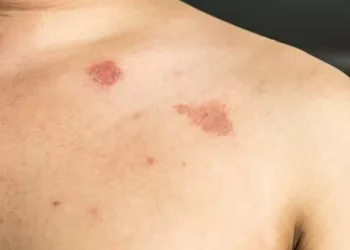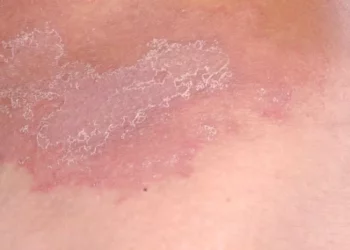Ringworm is a fungal infection that can affect cats, causing a variety of symptoms. It is important for cat owners to know how to spot this condition so that they can seek treatment early. This article will guide you through the signs, symptoms, and diagnostic methods to help you determine if your cat has ringworm. By understanding how to recognize this infection, you can protect your cat’s health and prevent its spread to other animals and humans.
What Is Ringworm?
Ringworm is not caused by a worm, but by a fungal infection. The fungus responsible for ringworm is called Microsporum canis, which commonly affects cats, especially kittens. The name “ringworm” comes from the circular shape of the lesions that appear on the skin. This condition can affect a cat’s skin, fur, and even its claws.
Common Symptoms of Ringworm in Cats
It is important to understand the symptoms of ringworm in cats because it can often be confused with other skin conditions. Here are the common signs to look out for:
1. Circular Hair Loss
One of the most obvious signs of ringworm in cats is hair loss that forms a circular pattern. These patches of hair loss are usually accompanied by scaly or crusty skin. The patches might start small and gradually grow larger as the infection spreads.
2. Red, Inflamed Skin
In addition to hair loss, the affected areas may appear red or inflamed. The skin may look irritated and feel warm to the touch. This inflammation is a result of the body’s immune response to the fungal infection.
3. Dandruff and Flaky Skin
As the fungal infection develops, you may notice that your cat has dandruff or flaky skin. The flakes may be visible on the fur, and you might also see crusting in the affected areas. The presence of dandruff can be a sign that your cat’s skin is not healthy due to the fungal infection.
4. Itchy Skin
Ringworm can be very itchy for cats. If your cat is constantly scratching, biting, or licking at certain areas, it could be a sign of ringworm. This constant irritation may cause your cat to develop secondary skin infections due to over-scratching.
5. Thickened or Crusty Skin
In some cases, the skin affected by ringworm may thicken or form crusts. These hardened areas are typically found where hair loss and inflammation are most prominent. The skin may also develop scabs or bumps, which can lead to further irritation and discomfort for the cat.
6. Lesions on Claws
Ringworm can also affect a cat’s claws. You may notice that the claws are brittle, discolored, or damaged. The fungal infection can cause the claws to become weak and prone to breaking. In severe cases, the infection may lead to nail loss.
How Is Ringworm Diagnosed in Cats?
If you notice any of the symptoms mentioned above, it is important to visit a veterinarian for a proper diagnosis. Here are some common methods used to diagnose ringworm in cats:
1. Physical Examination
The veterinarian will begin by performing a physical examination of your cat. They will look for signs of hair loss, inflammation, and other symptoms associated with ringworm. If the lesions are circular and have the typical appearance of ringworm, the vet may suspect a fungal infection.
2. Wood’s Lamp Examination
One common diagnostic tool used for ringworm is the Wood’s lamp. This special UV light can detect the presence of certain fungal spores that cause ringworm. When the fungus is present, the affected areas of the skin will often fluoresce a yellow-green color under the lamp.
3. Fungal Culture
The most accurate method for diagnosing ringworm is through a fungal culture. This involves taking a sample of the skin or hair from the affected area and growing the fungus in a lab. The culture will confirm whether the infection is caused by the Microsporum canis fungus. However, this test can take several days to complete.
4. Skin Scraping and Microscopic Examination
In some cases, the veterinarian may take a sample of skin cells from the affected area and examine it under a microscope. This can help to identify the presence of fungal spores or hyphae, which are the microscopic threads of the fungus that spread the infection.
Risk Factors for Ringworm in Cats
While ringworm can affect any cat, there are certain factors that make some cats more susceptible to the infection. Understanding these risk factors can help you take preventive measures:
1. Age
Kittens and young cats are at a higher risk of contracting ringworm because their immune systems are still developing. Adult cats may also get ringworm, especially if their immune system is compromised.
2. Poor Immune Function
Cats with weakened immune systems, such as those with feline leukemia or feline immunodeficiency virus, are more likely to develop ringworm. Cats that are stressed or ill may also have a reduced ability to fight off fungal infections.
3. Multiple Cat Households
If you have more than one cat in your home, the risk of ringworm spreading increases. The infection is highly contagious, and close contact between cats can easily transmit the fungus. It is important to quarantine infected cats to prevent the spread of ringworm to others.
4. Outdoor Exposure
Cats that spend time outdoors are more likely to be exposed to the fungus that causes ringworm. Wild animals or other pets that carry the infection can pass it on to outdoor cats.
How to Treat Ringworm in Cats
Once your cat has been diagnosed with ringworm, treatment can begin. It is important to follow the veterinarian’s recommendations carefully to help your cat recover and prevent further complications:
1. Antifungal Medications
Veterinarians commonly prescribe antifungal medications to treat ringworm. These medications may be given orally, topically, or both, depending on the severity of the infection. It is important to administer the medication as directed and complete the full course of treatment, even if your cat seems to be improving.
2. Medicated Shampoos
Medicated shampoos may be used to wash your cat and remove fungal spores from the skin. Regular baths can help reduce the spread of infection and provide relief from itching and irritation. Be sure to follow your vet’s instructions on how often to bathe your cat.
3. Environmental Cleaning
Since ringworm is highly contagious, it is important to thoroughly clean your cat’s environment. This includes washing bedding, toys, and any other items your cat uses regularly. You may also need to disinfect your home to prevent the spread of the infection to other pets or family members.
4. Isolation
Isolate your infected cat from other pets and people in the household until they have recovered from the infection. This will help prevent the spread of ringworm to other animals or family members.
Prevention Tips for Ringworm in Cats
Preventing ringworm in cats involves maintaining good hygiene, a healthy immune system, and limiting exposure to infected animals. Here are some preventive tips:
- Keep your cat indoors, especially if they are a kitten or have a weakened immune system.
- Regularly clean your cat’s bedding, toys, and grooming tools to reduce the chance of infection.
- Maintain a healthy diet and ensure your cat receives regular veterinary check-ups to support their immune system.
- Avoid contact with other infected animals, particularly if you have a multi-cat household.
Conclusion
Ringworm is a common but treatable condition in cats. Recognizing the symptoms early and seeking veterinary care can help ensure your cat receives the right treatment and recovers quickly. By following the recommended treatment plan and taking preventive measures, you can protect your cat from ringworm and reduce the risk of it spreading to others. Regular check-ups and good hygiene practices are key to keeping your cat healthy and preventing future infections.
Related topics:


























